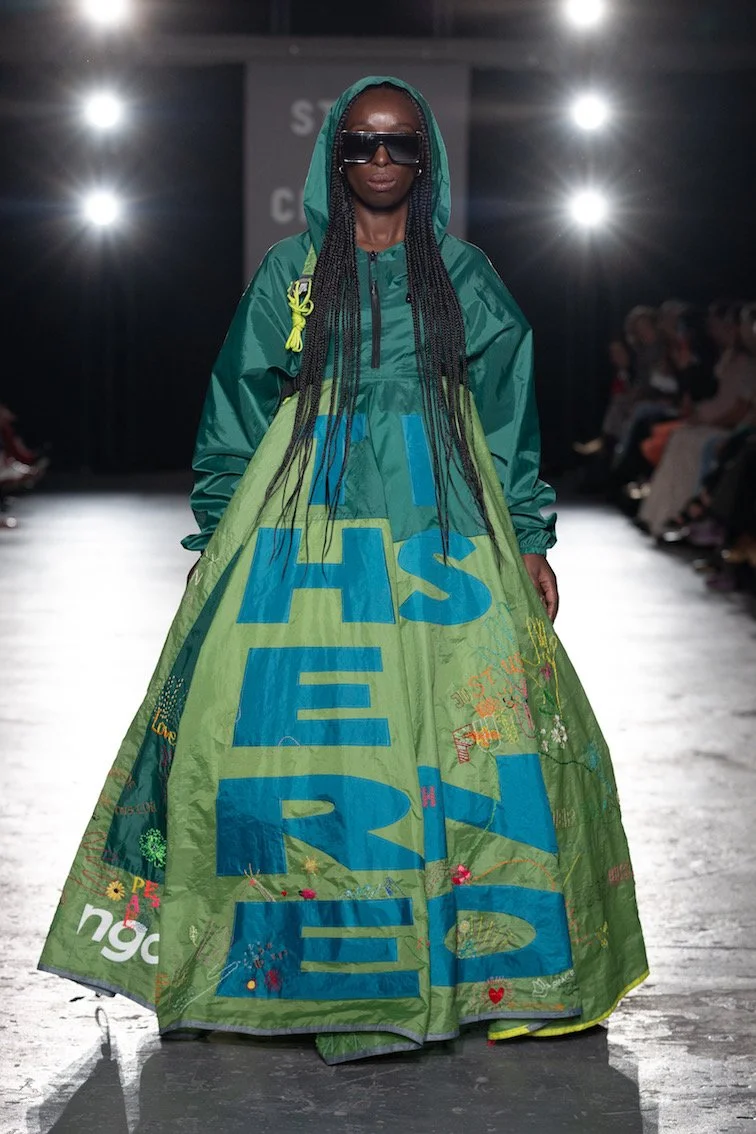He’s been shaking up the London underground scene since the ‘90s. Meet Dr NOKI, the original upcycler. Just don’t call him that…
NOKI does fashion on his own terms, including the language he prefers to describe his work. He “custom-builds” his “mashups” and “landfill drops”. It’s a practice that owes at debt to dadaism and made sense of his dyslexia. The story reaches to back into the ‘90s club scene, through the culture jamming of the No Logo years to end up at the cutting edge where art and fashion collide today.















